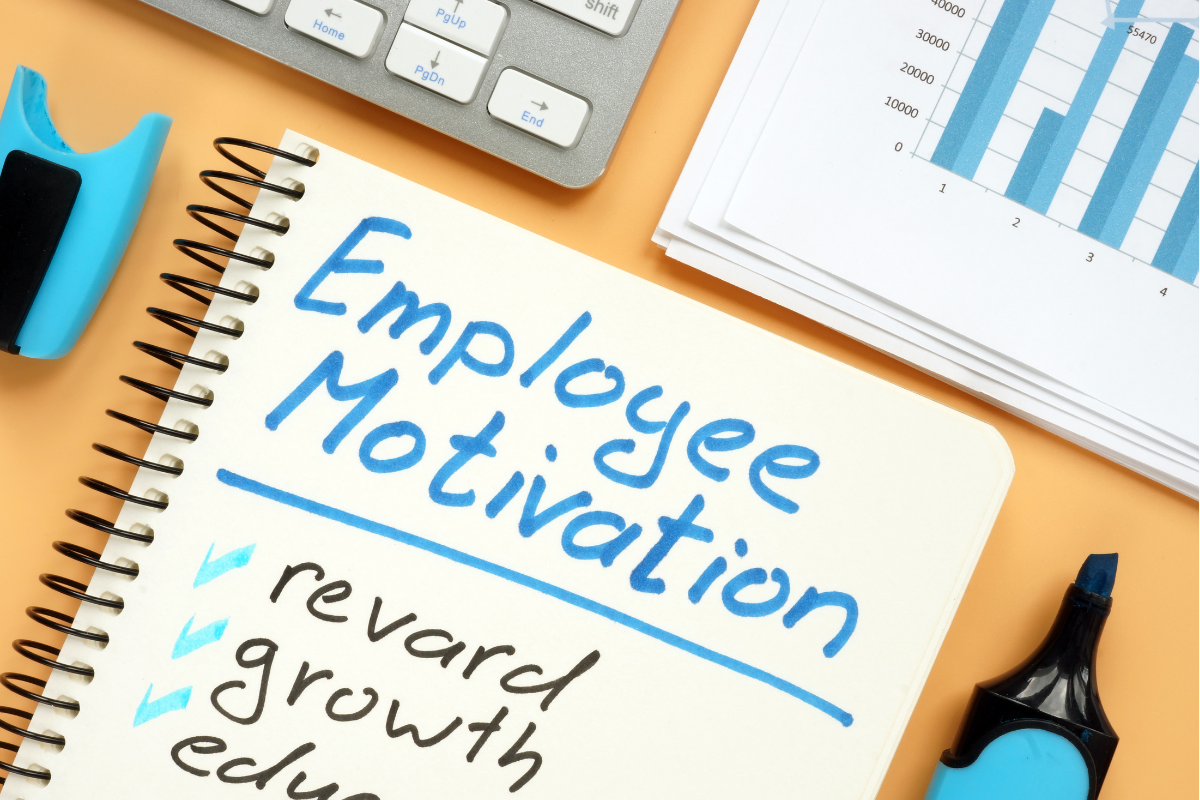

7 effective methods for boosting employee motivation
In today's increasingly competitive business landscape, keeping employees engaged is essential.
Motivated employees are not just more efficient; they also foster better teamwork, greater job satisfaction, and play a key role in the company's overall success.
Since motivation is not the same for everyone, it’s crucial to adopt strategies tailored to the team’s unique needs and the specific dynamics of the work environment.
In this article, we'll explore several tried-and-tested methods that can help motivate employees and increase their productivity at work.
Why employee motivation matters
Motivation is the fundamental driving force that influences the engagement, efficiency, and productivity of the workforce.
Through thoughtful strategies and techniques, managers can significantly improve the workplace atmosphere and enhance employee motivation and productivity, which can ultimately result in better business results.
Below are seven proven approaches that can help motivate your team and elevate their productivity.
1. Set clear goals and expectations
A key step in motivating employees is establishing specific and transparent goals. Employees thrive when they understand what’s expected of them and how their efforts contribute to the organization’s broader vision.
Clearly defined tasks help employees manage their time and focus more effectively, giving their work purpose and direction.

Motivated employees contribute to better interpersonal relationships.
2. Recognize and reward success
Employees need to feel that their contributions are noticed and appreciated. Acknowledging achievements—whether through public recognition, personalized rewards, or performance bonuses—boosts morale and encourages continued excellence.
Positive reinforcement, whether verbal or monetary, builds a culture of appreciation where employees feel valued and inspired to achieve more.
3. Create a positive work environment
Company culture greatly influences employee motivation. A positive work environment that encourages cooperation, respect, and open communication contributes to greater engagement.
Employees who feel connected to colleagues and management work with greater enthusiasm and dedication.
Through the organization of team-building activities, joint projects, and free expression, managers can improve interpersonal relations and create a team atmosphere.
4. Provide opportunities for growth
Employees who feel they have opportunities for advancement and development are often more motivated to perform their tasks. Providing education, training, and mentoring can increase engagement and productivity.
Developing skills not only increases employees’ competencies but also gives them a sense that investing in their careers has long-term benefits. Such an approach also increases employee loyalty to the organization.
Employee motivation is not a one-time task, but a continuous process.
5. Promote work-life balance
Recognizing the importance of work-life balance also has a significant impact on motivation.
A flexible working model, the possibility of working remotely, as well as policies that encourage vacation and time off, reduce stress and burnout.
Employees who can balance professional and personal commitments tend to be happier, more productive, and less likely to leave the organization.
6. Encourage autonomy and work independence
Granting employees more autonomy in performing their tasks can significantly increase their motivation. Through trust and responsibility, employees feel more in control of their work, which enables them to be more proactive and creative.
This independence not only motivates but also empowers them to take ownership of their work.
7. Inspire innovation and creativity
Motivating employees also means enabling space for innovation and creativity. A culture that invites new ideas and solutions not only motivates employees but also contributes to the constant progress of the organization.
Through brainstorming sessions and the implementation of new proposals, employees feel that their contribution has value and are encouraged to express their own opinions.

Mentor support as additional motivation
Motivated employees are better equipped to handle stress and challenges in the workplace.
When people feel supported and motivated by their superiors, it is easier for them to cope with difficulties and problems that arise on the way to achieving goals.
It is also important to emphasize that in every organization everything starts with management and team leaders who, if they do not contribute to motivating their employees, do not spread positive energy, and do not encourage free expression and decision-making, it will be much more difficult for the development and growth of the company/organization's business and its success.
Where there is employee demotivation, there is also increased turnover, and as a result, the company will stagnate and continually invest in onboarding new employees instead of working with existing ones to expand and progress the business.
Motivation as an ongoing commitment
Employee motivation is not a one-time effort, but a continuous process that requires adaptation and understanding of their evolving needs.
By setting clear goals, recognizing successes, providing opportunities for development, creating a positive work environment, and encouraging autonomy, managers can significantly increase their team's engagement and productivity.
Through the implementation of the mentioned methods, organizations can achieve long-term business results, while employees feel greater satisfaction in their professional life.









